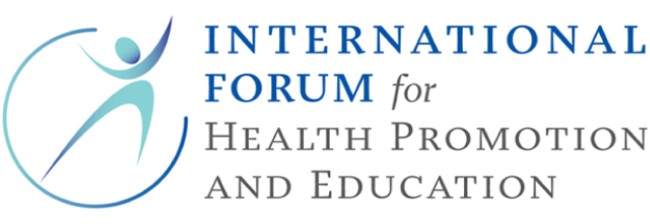 Jet lag is often considered to be a hazard of the job when you travel internationally on business. Yet there are several methods which you can use to reduce the effects of jet lag. So let’s begin with exploring simple, proven techniques that an international business traveller can implement before they commence their business trip.
Jet lag is often considered to be a hazard of the job when you travel internationally on business. Yet there are several methods which you can use to reduce the effects of jet lag. So let’s begin with exploring simple, proven techniques that an international business traveller can implement before they commence their business trip.
Our bodies are primed to respond to a precise daily routine controlled by a circadian rhythm (internal body clock) which responds to the rhythm of daylight and darkness. The circadian rhythm is involved in the regulation of digestion, hunger, eating, body temperature, blood pressure, bowel and urinary habits. When the body clock is thrown out of balance by changes in time zones it will upset the way our bodies perform.
 According to research conducted on international business travellers, jet lag is one of the most common problems encountered with 74% reporting ill effects. Not only does it affect our performance, but it also affects our health. Symptoms include general malaise, headaches, difficulty concentrating, memory problems, depression, psychomotor coordination, confusion, insomnia, irritability, menstrual and gastrointestinal disturbances. Studies on regular changes to sleep patterns show more severe consequences including higher rates of obesity, diabetes, cancer and cardiovascular disease.
According to research conducted on international business travellers, jet lag is one of the most common problems encountered with 74% reporting ill effects. Not only does it affect our performance, but it also affects our health. Symptoms include general malaise, headaches, difficulty concentrating, memory problems, depression, psychomotor coordination, confusion, insomnia, irritability, menstrual and gastrointestinal disturbances. Studies on regular changes to sleep patterns show more severe consequences including higher rates of obesity, diabetes, cancer and cardiovascular disease.
Individuals vary considerably in their susceptibility. Recent research shows about one third will suffer severe jet lag, and another third of travellers will suffer mild jet lag. Jet lag is worse for the older traveller (the effects increase as we age) and it will increase in severity with the number of time zones crossed as well as the direction travelled, with eastward travel reportedly being worse than westward travel. Health experts suggest allowing one day for each time zone crossed to adjust.
Recommendations on how to reduce the effects of jet lag are usually based on the sleep cycle and what may affect the circadium rhythm. The business traveller can make use of these recommendations to manipulate their body clock before, during and after they reach their destination to optimise their work performance when away on business.
Here are six ways to reduce the effects of Jet lag before you travel.
1. Prepare your itinerary
There is already a lot to remember before embarking on a business trip, however some minor adjustments to your itinerary before your leave might help reduce the feelings of jet lag.
First of all, be prepared by planning your journey with expectation that you will need to accommodate jet lag upon arrival. Schedules for work for the first few days should take into account the internal body clock’s home time. Important meetings should be scheduled for when you are at your maximum alertness, or delayed until you have adjusted. Planning also to sleep on the first evening is essential to help adjust to the new time zone.
 A prepared traveller could also check out the hotel facilities prior to travelling and build in some time to exercise and spend some time outside for sunlight. A simple one hour walk would be a healthy option. Alternatively use light therapy to help adjust the internal body clock at the appropriate times. Some hotels have a sun room which you can book and lie in sunlight. Bright light is one of the most powerful synchronisers of human rhythms. I tried and tested the sunroom at Grange St Paul’s Hotel in London and was amazed at how good I felt afterwards, although admittedly it was midwinter and any light was delightful! If you can’t get bright sunlight, then even sitting by the window on a winter’s day will also help to adjust your body clock.
A prepared traveller could also check out the hotel facilities prior to travelling and build in some time to exercise and spend some time outside for sunlight. A simple one hour walk would be a healthy option. Alternatively use light therapy to help adjust the internal body clock at the appropriate times. Some hotels have a sun room which you can book and lie in sunlight. Bright light is one of the most powerful synchronisers of human rhythms. I tried and tested the sunroom at Grange St Paul’s Hotel in London and was amazed at how good I felt afterwards, although admittedly it was midwinter and any light was delightful! If you can’t get bright sunlight, then even sitting by the window on a winter’s day will also help to adjust your body clock.
The effectiveness of exposure to light depends on the timing. Based on home times, it is recommended an eastward traveller seeks light in the morning, (around 5.00 am to 11.00 am) and a westward travellers seeks light in the evening (around 10.00 pm to 4.00 am).
The combination of sleep and sunlight at the right times, appears to be the most effective method to reduce the effects of jet lag. So preparing for these two factors in your itinerary is a good start to your business trip.
2. Catch up on your sleep before you depart
Make sure you are fully rested and have caught up with your sleep before you travel. Travel health experts recommend making sure you have a good night’s sleep for several nights prior to travel, particularly as sleep deficit is most likely to occur after arrival. So carrying on board a sleep deficit or having sleep deprivation before travelling could make the effects of jet lag much worse.
3. Adjust your sleep prior to travel 
Some travellers might find it useful to adjust their sleeping and awaking times prior to travelling in an attempt to coincide with destination time. The rule of thumb is an adjustment of one hour per day. The UK NHS advice is to start getting up and going to bed earlier (if travelling east) or later (if travelling west) a few days prior to travel.
Although this approach is recommended for short trips by the American Association for Sleep Medicine (ASSM), particularly if combined with exposure to light, it isn’t recommended by the World Health Organisation (WHO), on the basis that the body clock may not have an opportunity to synchronize to the new time zone, and resynhcronisation to the home time zone may be delayed after the home flight.
However, each traveller is different and for travel when time zones are less than 4 hours, some travellers might find this method an effective way of managing potential jet lag.
4. Prevent dehydration
 Dietitians and UK NHS recommend you are adequately hydrated prior to travelling. Dehydration can intensify the effects of jet lag, such as fatigue, headaches, general malaise and constipation. Your urine should be clear to pale-yellow in colour prior to boarding your flight. Suggestions for amount of water to consume is generally 225 mls of fluid every hour.
Dietitians and UK NHS recommend you are adequately hydrated prior to travelling. Dehydration can intensify the effects of jet lag, such as fatigue, headaches, general malaise and constipation. Your urine should be clear to pale-yellow in colour prior to boarding your flight. Suggestions for amount of water to consume is generally 225 mls of fluid every hour.
Water is the best beverage to sip when travelling, but don’t forget you also get water from food, so make sure you consume plenty of fruit and vegetables. This will also help reduce the onset of constipation, especially if you are prone to irregular bowel movements as a result of time adjustment.
5. Exercise
Some studies report that travellers who are physically fit tend to have fewer and lighter symptoms of jet lag compared to those who aren’t fit. Light exercise before travel may also help reduce the risk of DVT. Some airports are now investing in exercise bikes for travellers to indulge in prior to or between flights.
6. Adjusting your diet
Diet is a controversial subject, with many so called poorly qualified ‘nutritionists’ providing advice without being properly qualified or registered with either the Association for Nutrition or the British Dietetic Association.
So here are some guidelines which are recommended by the World Health Organisation (WHO), American Academy of Sleep Medicine (AASM) and UK National Health Service (NHS).
Fast or Feast – you may of heard of the Fast or Feast diet 3 days prior to travelling. However, it is not recommended by the WHO, AAMS nor the UK NHS. The ‘theory’ is based on the inclusion of carbohydrate or protein at different meal times. On a fast day, travellers would be encourage to eat mainly protein and on a feast day to include carbohydrate. The reported effectiveness for this regime has not been confirmed by formal research and studies conducted have been questionable over the poor research methodologies. Some experts may also question how the regular use of this regime may be detrimental to achieving a healthy balanced diet over time and consequently  leading to longer term health problems.
leading to longer term health problems.
Light meals and limit alcohol prior to travel. Consuming light meals and limiting, if at all any, alcohol and coffee prior to boarding are recommended by both the UK NHS and WHO.
Heavy meals may make you feel over full during a prolonged period of sitting in a pressurized aeroplane cabin, adding to this is the constant serving of meals and snacks which may add further discomfort upon arrival at your destination. Feeling bloated will make sleep more difficult to achieve.
Avoid alcohol before take-off as although it might accelerate the onset of sleep, it tends to impair the quality of sleep. Your sleep may also be more disturbed by the more frequent need to go to the toilet.
Coffee is a stimulant and could impair the onset of sleep at the chosen time. So limit this to small amounts and avoid it within 4 – 6 hours of the expected sleep time.
Jet lag differs from person to person, and intensifies with the number of time zones crossed, the direction of travel and the age of the business travel. So, if you are seeking optimum ability to perform on a regular basis, then testing out what works for you is worthwhile.
© Extravitality 2015






























1 thought on “How to reduce the effects of jet lag prior to travelling”